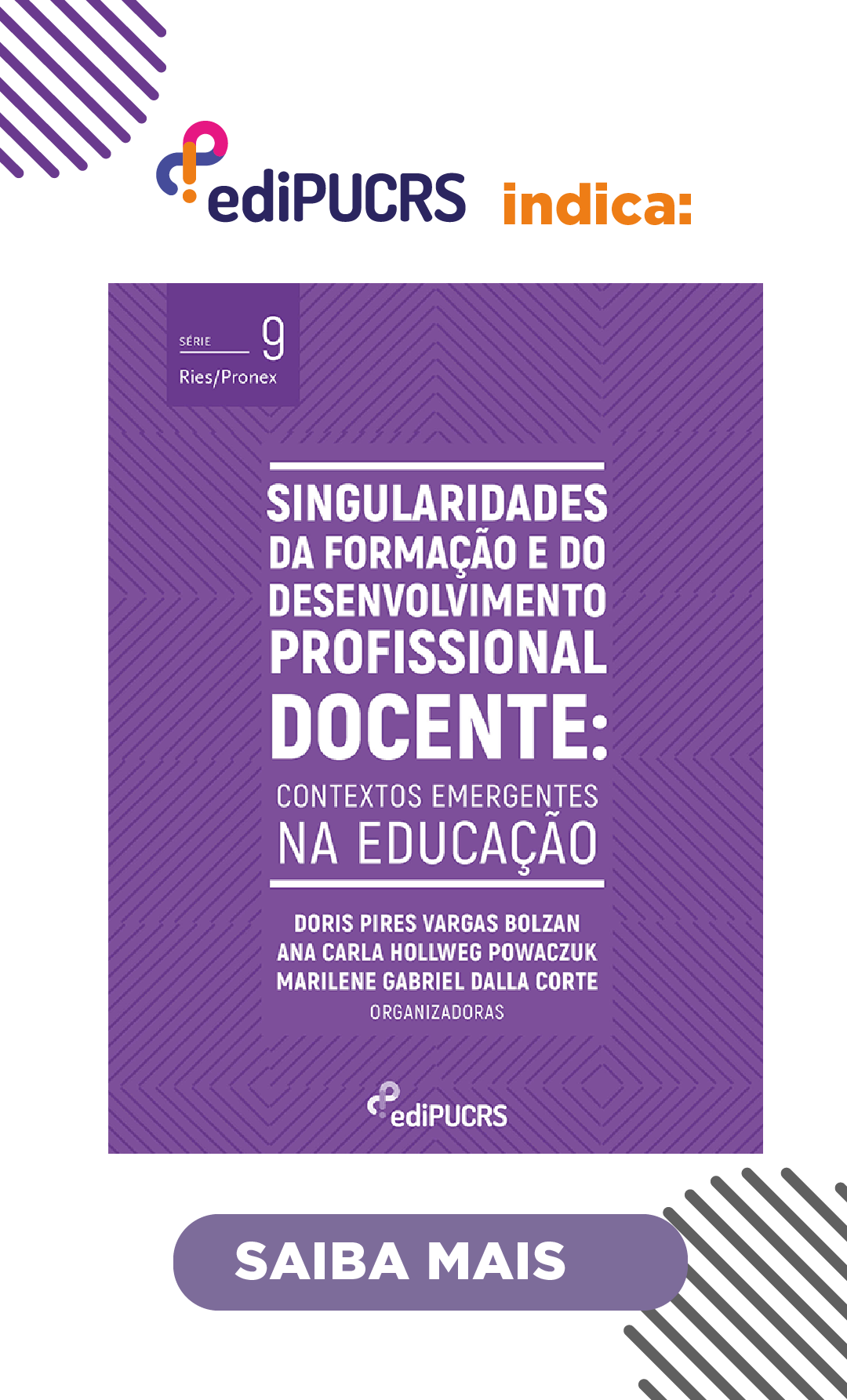Cooperate and collaborate in learning processes
An analysis of the concepts
DOI:
https://doi.org/10.15448/2179-8435.2021.1.38027Keywords:
Cooperation, Collaboration, Education, Concept analysis methodAbstract
The terms “cooperation” and “collaboration” have been used by educators and researchers over the years, in different works, such as Torres and Irala (2014), Ferraz and Sasseron (2017) and Klein and Vosgerau (2018). However, the words have different meanings when considered in learning situations. Thus, they are concepts investigated in this article through qualitative research, using the concept analysis method, proposed by Walker and Avant (2011), with the support of an integrative review. This research aims to identify the definitions (also considering nuances) of the aforementioned terms used by researchers in the field of education. The integrative review, carried out in one of the steps of the concept analysis method, made it possible to raise different attributes that can be used for each of the terms analyzed here, in order to differentiate them, especially in pedagogical contexts. Furthermore, it was found that it is feasible to use both cooperation and collaboration at different levels of education; however, for the correct choice of the concept, the teacher who works in educational institutions must evaluate the most suitable methodology for the students of his class.
Downloads
References
ARCHER, Carol; KELEN, Christopher. Dialogic pedagogy in creative practice: a conversation in examples. Pedagogy, Culture and Society, v. 23, n. 2, p. 175-202, 2015. http://doi.org/10.1080/14681366.2014.932301
BLACKLEY, Susan et al. Using a makerspace approach to engage Indonesian primary students with STEM. Issues in Educational Research, v. 28, n. 1, p. 18-42, 2018. Disponível em: https://www.iier.org.au/iier28/blackley.pdf
BOVILL, Catherine et al. Addressing potential challenges in co-creating learning and teaching: overcoming resistance, navigating institutional norms and ensuring inclusivity in student-staff partnerships. Higher Education, v. 71, n. 2, p. 195-208, 2016. https://doi.org/10.1007/s10734-015-9896-4
CASTELLARO, Mariano A.; ROSELLI, Néstor D. Peer collaboration in childhood according to age, socioeconomic context and task. European Journal of Psychology of Education, v. 30, n. 1, p. 63-80, 2014. http://doi.org/10.1007/s10212-014-0228-3
CEN, Ling et al. Quantitative approach to collaborative learning: performance prediction, individual assessment, and group composition. International Journal of Computer-Supported Collaborative Learning, v. 11, n. 2, p. 187-225, 2016. http://doi.org/10.1007/s11412-016-9234-6
CHILD, Simon F. J.; SHAW, Stuart. Towards an operational framework for establishing and assessing collaborative interactions. Research Papers in Education, v. 34, n. 3, p. 276-297, 2019. https://doi.org/10.1080/02671522.2018.1424928
CORONADO, Daniela M.; MIYASHIRO, Mercedes María N. Autonomous learning strategies in the reading comprehension of high school students. Propósitos y Representaciones, v. 7, n. 2, p. 134-159, 2019. http://doi.org/10.20511/pyr2019.v7n2.276
DEERING, Paul D. et al. Preparing young adolescents for a bright future – right now! Middle School Journal, v. 47, n. 1, p. 19-26, 2015. http://doi.org/10.1080/00940771.2016.1059726
FERNANDES, Maria das Graças M. et al. Análise conceitual: considerações metodológicas. Revista Brasileira de Enfermagem, Brasília, DF, v. 64, n. 6, p. 1150-1156, 2011. https://doi.org/10.1590/S0034-71672011000600024
FERRAZ, Arthur T.; SASSERON, Lúcia H. Espaço interativo de argumentação colaborativa: condições criadas pelo professor para promover argumentação em aulas investigativas. Ensaio Pesquisa em Educação em Ciências, Belo Horizonte, v. 19, p. 1-25, 2017. https://doi.org/10.1590/1983-21172017190117
KLEIN, Edna L.; VOSGERAU, Dilmeire S. R. Possibilidades e desafios da prática de aprendizagem colaborativa no ensino superior. Educação, Santa Maria, v. 43, n. 41, p. 667-698, 2018. https://doi.org/10.5902/1984644429300
MEYER, Kimberly; WURDINGER, Scott. Students’ perceptions of life skill development in project-based learning schools. Journal of Educational Issues, v. 2, n. 1, p. 91, 2016. https://doi.org/10.5296/JEI.V2I1.8933
MIRHOSSEINI, Fakhrossadat et al. Exploring the concept of Scholarship of Teaching and Learning (SoTL): concept analysis. Medical Journal of the Islamic Republic of Iran, v. 32, n. 1, 2018. http://doi.org/10.14196/mjiri.32.96
MORLEY, Christine; ABLETT, Phillip. Designing assessment to promote engagement among first year social work students. e-Journal of Business Education and Scholarship of Teaching, v. 11, n. 2, p. 1-14, 2017. Disponível em: https://eric.ed.gov/?id=EJ1167329
PAI, Hui-Hua; SEARS, David A.; MAEDA, Yukiko. Effects of small-group learning on transfer: a meta-analysis. Educational Psychology Review, v. 27, n. 1, p. 79-102, 2014. https://doi.org/10.1007/s10648-014-9260-8
REED, Malcoml. Classroom interaction and the development of empowerment. Changing English: Studies in Culture and Education, v. 25, n. 2, p. 115-134, 2018. https://doi.org/10.1080/1358684X.2018.1458283
TARCHI, Christian; PINTO, Giuliana. Reciprocal teaching: analyzing interactive dynamics in the co-construction of a text’s meaning. Journal of Educational Research, v. 109, n. 5, p. 518-530, 2016. http://doi.org/10.1080/00220671.2014.992583
TORRES, Patricia L.; IRALA, Esrom Adriano F. Aprendizagem colaborativa: teoria e prática. In: TORRES, Patricia L. (Org.). Complexidade: redes e conexões na produção do conhecimento. Curitiba: Senar-PR, 2014. p. 61-94.
TORRES, Patricia L.; SIQUEIRA, Lilia María M. Educação virtual nas universidades: as contribuições da aprendizagem colaborativa. Revista de História da Educação Latino-Americana, v. 14, n. 19, p. 175-204, 2012. http://doi.org/10.9757/Rhela.19.08
VOSGERAU, Dilmeire S. R.; ROMANOWSKI, Joana P. Estudos de revisão: implicações conceituais e metodológicas. Diálogo Educacional, Curitiba, v. 14, n. 41, p. 165-189, 2014. http://doi.org/10.7213/dialogo.educ.14.041.DS08
WALKER, Lorraine O.; AVANT, Kay C. Strategies for theory construction in nursing. 5ª Ed. Boston: Pearson, 2011.
WOSNITZA, Marold S. et al. Consistently inconsistent: teachers’ beliefs about help seeking and giving when students work in groups. Teachers and Teaching, v. 21, n. 1, p. 74-86, 2015. http://doi.org/10.1080/13540602.2014.928119
ZAMBERLAN, Lisa; WILSON, Stephanie E. “Conversation leading to progress”: student perceptions of peer tutors’ contribution to enhancing creativity and collaboration in a first year design studio. Journal of Peer Leraning, v. 10, p. 59-75, 2017. Disponível em: https://ro.uow.edu.au/ajpl/vol10/iss1/5/
Downloads
Published
How to Cite
Issue
Section
License
Copyright (c) 2021 Educação Por Escrito

This work is licensed under a Creative Commons Attribution 4.0 International License.
Copyright
The submission of originals to Educação Por Escrito implies the transfer by the authors of the right for publication. Authors retain copyright and grant the journal right of first publication. If the authors wish to include the same data into another publication, they must cite Educação Por Escrito as the site of original publication.
Creative Commons License
Except where otherwise specified, material published in this journal is licensed under a Creative Commons Attribution 4.0 International license, which allows unrestricted use, distribution and reproduction in any medium, provided the original publication is correctly cited.





